Dhaka should no longer be capital
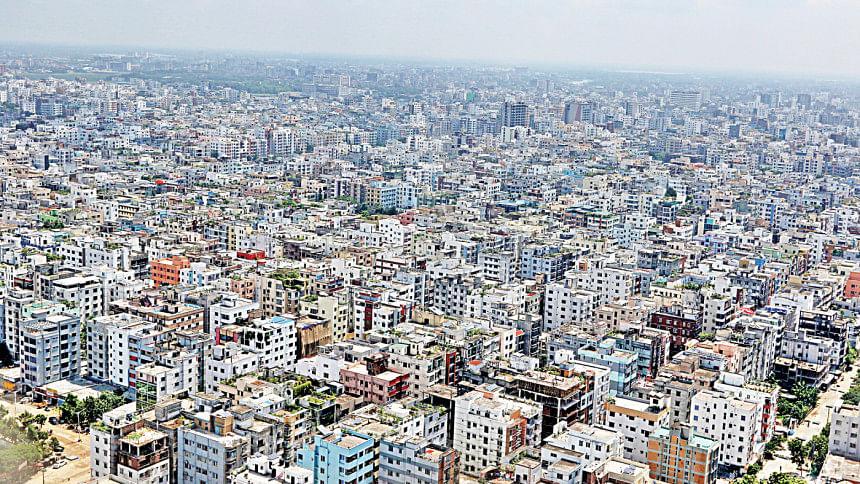
Dhaka, the capital of Bangladesh, has long been a vibrant cultural and economic hub. As one of the world's largest megacities, it never sleeps, embracing millions from diverse backgrounds.
However, in doing so, it has gradually lost its charm and liveability over time due to urban sprawl, and is now facing challenges that threaten its ability to function as a modern, sustainable capital.
A task force report recently suggested relocating the capital, arguing that the issue is no longer about feasibility but survival -- socially, economically, and environmentally.
The report, titled "Re-strategising the Economy and Mobilising Resources for Equitable and Sustainable Development," warns that without immediate action, Dhaka's function as a sustainable capital will continue to erode, posing a serious threat to national stability and growth.
Among its many issues, Dhaka has a poorly designed road network that covers only seven percent of the city, with no clear hierarchy between primary, secondary, and tertiary roads, said the report.
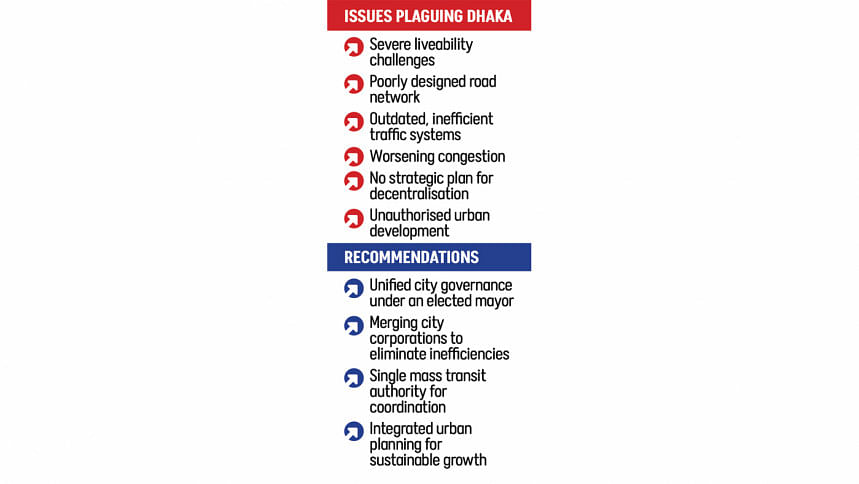
The report highlights outdated traffic management systems, the absence of modern solutions like one-way flows and tidal traffic management, and the lack of efficient mass transit infrastructure, like terminals or multimodal hubs.
The current chaotic and dysfunctional situation is worsened by the addition of new railway tracks and multiple flyovers, which have caused irreversible damage, limiting future transit improvements, it added.
The report argues that these structural weaknesses prevent Dhaka from functioning as a smart, investment-friendly capital. Despite these challenges, there is no strategic plan to decentralise or relocate the capital, even though countries like India, Pakistan, Brazil, Nigeria, Myanmar, Malaysia, Indonesia, Egypt, and South Korea have successfully done so.
Historically, capital relocations have been driven by overcrowding, congestion, environmental concerns like groundwater depletion, and the need for better national accessibility.
Most importantly, such moves aim to create modern, smart cities that are resilient, sustainable, less demanding, and investment-friendly, the report said.
While shifting Dhaka is a long-term goal, the report urges immediate governance and service delivery reforms in line with global best practices.
The report mentioned that Dhaka lacks reliable access to essential services such as hospitals, offices, and schools, further exacerbated by chronic drainage issues and groundwater depletion.
The Central Business District is eccentrically located in the south, forcing high travel demand from residential areas in the north.
Alarmingly, 85 percent of urban development is unauthorised, failing to meet firefighting standards, while restricted zones around airports and cantonments have stifled urban expansion, the report added.
Meanwhile, unplanned development is rapidly destroying wetlands, causing severe environmental damage, it said.
The report said Dhaka is officially the slowest city in the world. The city's traffic operating speed has seen a dramatic decline over the years, dropping from 25 kmph in 1997 to 6.7 kmph in 2015 and worsening further since then.
Dhaka is also among the least livable cities globally, with the highest air pollution level, poor water quality, and a vulnerable drainage system. It also ranks low in economic competitiveness, it added.
The report highlights the lack of space for footpaths, bikeways, or public transport facilities. The railway system is tangled with road infrastructure, and bridges have constricted waterways, limiting their potential, it said.
Uncontrolled urban sprawl along rivers further reduces the feasibility of planned expansion. Additionally, immovable restricted zones spanning 11.5km from Tejgaon to Dhaka airport severely constrain mobility and growth.
To address these challenges, the task force recommends unified city governance under an elected mayor, merging Dhaka's two city corporations.
Agencies such as WASA, DPDC, DESCO, RAJUK, and DMP should operate under the single authority to eliminate overlapping responsibilities and inefficiencies, it suggested.
The current bifurcation of Dhaka, which intended to promote decentralisation, has led to resource disparities, coordination gaps, and administrative inefficiencies, necessitating reintegration under a unitary administration, argued the report.
Similarly, the report suggests creating a Single Mass Transit Regulatory Authority under the Mayor's Office to coordinate among BRTC, BRTA, DTCA, DMTCL, and DBRTCL.
"A unified city government under an elected mayor, consolidating all infrastructure development and service providers, is essential for integrated urban planning, efficient resource allocation, and sustainable growth," the report said.
The recommendations are outlined in the chapter "Infrastructure and Connectivity: A Pathway to Economic Prosperity," prepared by Buet Professor Md Shamsul Hoque.

 For all latest news, follow The Daily Star's Google News channel.
For all latest news, follow The Daily Star's Google News channel. 



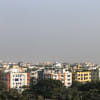

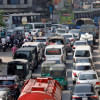

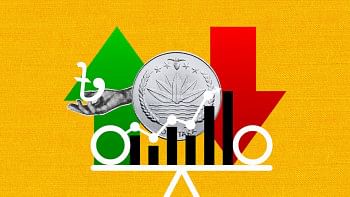
Comments